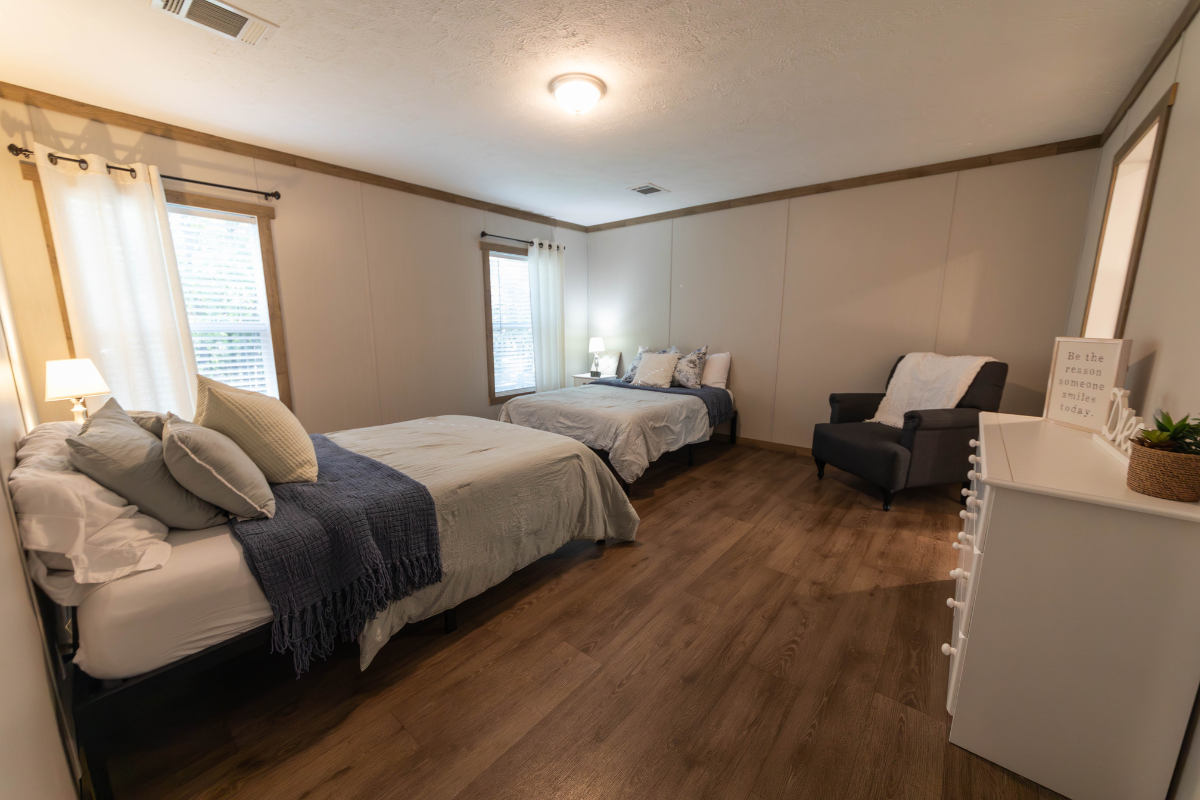Trigger warning: This article is for educational purposes. If you are having suicidal thoughts or are considering self-harm, you are experiencing a mental health emergency and need urgent support. Contact The National Suicide Prevention Lifeline 24 hours a day, 7 days a week, by calling or texting 988.
Eating disorders (EDs) are a complex group of severe mental and physical illnesses that often have life-threatening consequences. They cause severe disturbances in people’s eating behaviors, thoughts, and emotions. Common EDs include bulimia nervosa (BN), binge eating disorder (BED), anorexia nervosa (AN), avoidant/restrictive food intake disorder (ARFID), and otherwise specified feeding or eating disorders (OSFED).
Typically characterized by obsessions with food, body weight, and shape, these disorders are often stereotyped and misunderstood, and many are underdiagnosed and undertreated, as well. If you’re concerned about your eating habits or those of a loved one, it is essential to gain a deep understanding of eating disorders. Most importantly, you should seek help immediately if your concerns continue to escalate.
How Common Are Eating Disorders?
Roughly 9% of the US population, or 28.8 million people, experiences an eating disorder at some point in life.[1] Unfortunately, these disorders have become more common in recent decades; the percentage of people with a diagnosable eating disorder increased from 3.5% to 7.8% — more than doubling — from 2000 to 2018.
Generally, the prevalence of EDs is estimated to be higher in females than males.2 While people of all ages can be affected, many cases are observed among young adults.[3]
Key risk factors for eating disorders include:
- Gender
- Ethnicity
- Early childhood eating and gastrointestinal problems
- Negative self-evaluation
- Sexual abuse and other traumatic experiences
Research also indicates that anxiety disorders — especially social anxiety disorders — will often precede the onset of an ED.[1] Fewer than 6% of people with EDs are medically diagnosed as “underweight”.[5] Contrary to popular opinion, EDs can affect people of all body weights and shapes.
Due to the various treatment options available, selecting a treatment center for EDs and mental health treatments can be challenging. Magnolia Creek is committed to a collaborative, evidence-based treatment approach. Focusing on nutrition and personal empowerment, we guide adolescent girls and women ages 12 and older to recovery.
Eating disorders & mortality
Eating disorders impact a significant portion of the population, though they often go unnoticed and underdiagnosed. Recent studies show more than 70% of those struggling with EDs will never receive access to the treatment they need and deserve.
Eating disorders can have a devastating impact on every organ system in the body. One study found there were multiple causes of death among individuals with anorexia nervosa (AN)[4], including:
- Gastrointestinal issues
- Heart failure
- Hypoglycemia (low blood sugar)
- Hypokalemia (low blood levels of potassium)
- Infection
- Irregular heart rhythms
- Kidney disease
- Liver cirrhosis
- Pulmonary embolisms
- Severe osteoporosis
- Substance misuse
- Suicide
Between 2018 and 2019, an estimated 10,200 people died from an ED[1], with AN having the highest case mortality rate.[5] While the cause of death can vary significantly, those with the highest symptom severity are 11 times more likely to attempt suicide than their peers without ED symptoms. Individuals who have AN are 18% more likely to commit suicide than those without an ED.
Eating disorder treatment statistics
Demographic trends suggest the incidence of ED will increase from 5.48 million individuals in 2018-19 to 5.75 million people by 2029-30.
Here are some little-known facts about these disorders:
- Only 12% of people suffering from an ED sought help from a mental health practitioner over the course of one year.[1]
- Studies show that 60% of people with an ED saw their primary care provider about the disorder over one year.[1]
- People with larger bodies are at higher risk for EDs.[5]
- Less than 6% of people suffering from EDs are medically classified as “underweight.”[5]
Individuals suffering from EDs need immediate treatment. Not only are they at a higher risk for suicide and self-harm, but they often have other mental disorders, such as depression or anxiety, or substance use disorders (SUD)3 that contribute to and worsen the health effects of an eating disorder.
Magnolia Creek is dually licensed to treat EDs and mental health disorders. We tailor our treatment plans to individual needs and treat a multitude of co-occurring disorders, including depressive disorders, anxiety, obsessive-compulsive disorder (OCD), bipolar disorder, post-traumatic stress disorder (PTSD), and personality disorders.
Statistical Snapshot By Eating Disorder Type
Let’s take a look at the facts surrounding three common types of EDs.
Bulimia nervosa statistics
- BN has a median age of onset of 18 years.[9]
- Estimates show that 1% of Americans will have BN at some point.[9]
- BN is five times more common in women than in men.[9]
- Approximately 43% of individuals with BN will seek treatment for the disorder.[9]
- Over 94% of those with BN also suffer from a co-occurring mental health condition.[9]
Binge eating disorder statistics
- BED has a median age of onset of 21 years.[9]
- The prevalence of BED in the US is 1.2%; the condition affects women twice as often as men.[9]
- Estimates show that about 3% of Americans will suffer from BED at some point in their life.[9]
- Approximately 44% of those with BED will seek treatment for the disorder.[9]
- Nearly 79% of those with BED also have another co-occurring mental health condition.[9]
Anorexia nervosa statistics
- AN has a median age of onset of 18 years.[9]
- AN is three times more common among women than men.[9]
- Only 33% of those with AN seek treatment.[9]
- Surveys indicate that males with AN seek treatment more often than females.[9]
- Over 56% of individuals with AN have a co-occurring mental health condition.
Demographic Misconceptions about Eating Disorders
It’s clear that EDs present a significant threat to the health of adolescents and young adults, but they remain underdiagnosed and undertreated at a population level.
Historically, EDs have been thought to affect “skinny, white, affluent girls” (the SWAG stereotype).[12] In reality, these disorders affect broad swaths of the population. Racial and ethnic minority groups, people with larger bodies, people with socioeconomically disadvantaged backgrounds, and cisgender men often have their symptoms misattributed or ignored. As a result, they may not receive a proper diagnosis or be referred to appropriate treatment for eating disorders.
Eating disorders in children & adolescents
- 2.7% of teens aged 13-18 have suffered from an ED.[9]
- EDs are twice as common among teen girls compared to teen boys.[9]
- ED prevalence among teens increases slightly with age (from 2.4% among 13-14 year-olds to 3% among 17-18 year-olds).[9]
Eating disorders in men and boys
- Studies show that about 4% of males will experience an ED at some point in their lives.[1]
- 22% of young adult men report using disordered eating behaviors to influence their muscularity.[7]
- Men are five times less likely to receive an ED diagnosis than women.[12]
Eating disorders in BIPOC
- Black/African American women are 20% more likely than white women to participate in unhealthy weight control behaviors.[6]
- 82.5% of Hispanic/Latina adolescent women report unhealthy weight control behaviors, which is the highest of any ethnic group.[6]
- Hispanic/Latino men are 10 times more likely to experience binge eating behaviors compared to men of any other ethnic group.[6]
- People of color are less likely to receive an ED diagnosis compared to their white counterparts.[7]
Eating disorder statistics can be alarming, especially if you or a loved one is affected by any one of these conditions. You don’t have to walk through this journey alone.
Why Magnolia Creek?
Magnolia Creek offers comprehensive eating disorder treatment options, including individual therapy, nutrition counseling, a robust family therapy program, and other educational resources. In 2022, those who sought treatment at Magnolia Creek experienced a 66% reduction in the severity of their eating disorder symptoms.
If you’re concerned about your eating habits or those of someone you love, call us or fill out our form; our dedicated admissions team will help you find the best treatment options. Take the next step towards eating disorder recovery and a healthier, more balanced life.
Sources
- Social and economic cost of eating disorders in the United States of America. (2020).
- Galmiche, M., Déchelotte, P., Lambert, G., & Tavolacci, M. P. (2019). Prevalence of eating disorders over the 2000–2018 period: A systematic literature review. The American Journal of Clinical Nutrition, 109(5), 1402–1413.
- National Institute of Mental Health. (2024). Eating disorders. National Institute of Mental Health.
- Westmoreland, P., Duffy, A., Rienecke, R., Le Grange, D., Joiner, T., Manwaring, J., Watters, A., & Mehler, P. (2022). Causes of death in patients with a history of severe anorexia nervosa. Journal of Eating Disorders, 10(1).
- ANAD. (2023, November 29). Eating disorder statistics | ANAD – National Association of Anorexia Nervosa and Associated Disorders. ANAD.org.
- Simone, M., Telke, S., Anderson, L. M., Eisenberg, M., & Neumark-Sztainer, D. (2022). Ethnic/racial and gender differences in disordered eating behavior prevalence trajectories among women and men from adolescence into adulthood. Social Science & Medicine, 294, 114720.
- Sonneville, K. R., & Lipson, S. K. (2018). Disparities in eating disorder diagnosis and treatment according to weight status, race/ethnicity, socioeconomic background, and sex among college students. International Journal of Eating Disorders, 51(6), 518–526.
- Baker Dennis, PhD, FAED, A. (Ed.). (n.d.). Anorexia nervosa. National Eating Disorders Association.
- National Institute of Mental Health. (2017, November). Eating disorders. National Institute of Mental Health.
- Baker Dennis, PhD, FAED, A. (Ed.). (n.d.). Bulimia nervosa. National Eating Disorders Association.
- Baker Dennis, PhD, FAED, A. (Ed.). (n.d.). Binge eating disorder (BED). National Eating Disorders Association.
- Sonneville, K. R., & Lipson, S. K. (2018). Disparities in eating disorder diagnosis and treatment according to weight status, race/ethnicity, socioeconomic background, and sex among college students. International Journal of Eating Disorders, 51(6), 518–526.
Complete our contact form
Your privacy is our priority. All communication is completely confidential.















































